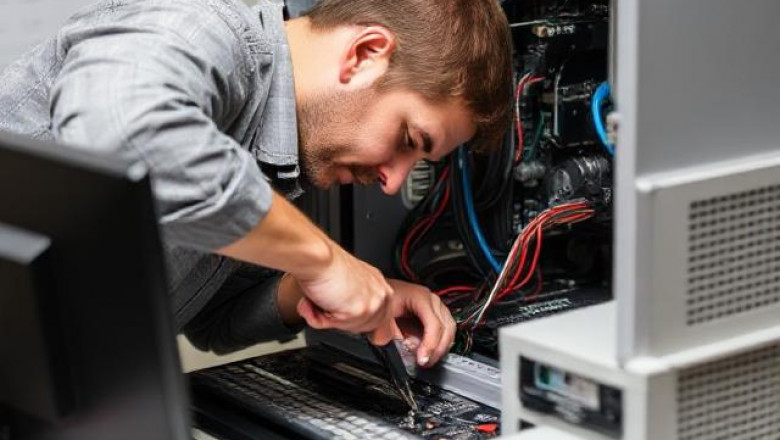views
Computers have become a part of everyday life. Whether it's for work, study, or entertainment, most of us depend on a computer to get things done. But what happens when it starts acting up—freezing, crashing, or refusing to start at all?
This brings up a big question: should you repair your computer or replace it? In this blog, we’ll break it down and help you make the right choice with a focus on affordable computer repair options.
1. Check the Age of Your Computer
The first thing to think about is how old your computer is. If your PC or laptop is over 5 to 7 years old, it might be reaching the end of its useful life. That doesn’t mean you must replace it immediately, but repairs on older systems may not be worth the money.
Repair Tip:
If the issue is minor—like a faulty power button, bad battery, or slow performance—you might be able to fix it at a low cost and get a couple more years out of it.
2. Identify the Problem
Before deciding, try to understand what’s actually wrong.
-
Is it a hardware issue (broken screen, dead hard drive, bad fan)?
-
Or is it a software issue (virus, slow startup, system crash)?
Software problems are usually cheaper to fix and often don't require replacing the computer.
Affordable computer repair services can handle things like:
-
Virus removal
-
Operating system reinstall
-
RAM upgrade
-
Replacing hard drives with SSDs
3. Compare Repair Cost vs. Replacement
A good rule of thumb:
If the repair cost is more than half the price of a new computer, replacement may be the better choice.
Let’s say a new laptop costs $500, and your repair will cost $300—it may be smarter to put that money toward a new machine with updated features.
When Repair Makes Sense:
-
Repairs cost under $100–150
-
Your current computer meets your needs
-
It's only 2–3 years old
When Replacement Makes Sense:
-
Repair costs are high
-
The computer is old and slow
-
You need better performance for work or study
4. Look Into Upgrades Instead of Full Repairs
Sometimes, you don’t need to fix everything. A small upgrade can give your computer new life.
Examples of affordable upgrades:
-
Add more RAM to improve multitasking
-
Replace an old hard drive with an SSD for faster speed
-
Clean the inside and replace thermal paste to stop overheating
These upgrades are cheaper than buying a new computer and can make your system run much better.
5. Think About Future Use
Ask yourself:
-
Will I use this computer for gaming, video editing, or just browsing and office work?
-
Am I planning to keep it for many more years?
-
Is this the only computer I have?
If your current device can’t support your future needs (like heavy software), replacing it might be the better long-term move. But if you only need it for simple tasks, fixing it may be the smart and affordable route.
Final Thoughts
Making the decision between affordable computer repair and buying a new device can be tough. If your computer is still fairly new and repair costs are low, fixing it is often the smarter option. But if repairs are expensive and your machine is aging, investing in a new one may be better in the long run.
Remember, not all repairs require a technician. Some small fixes—like cleaning dust, upgrading RAM, or installing software—can be done at home with a little help from online guides.
FAQs
1. What is considered an affordable computer repair?
Anything under $100–$150 is generally seen as affordable, especially for minor fixes like software issues, battery changes, or keyboard replacements.
2. How do I know if my computer can be upgraded?
You can check your computer model online or consult a local technician. Most desktops and some laptops allow upgrades like RAM or storage.
3. Can replacing a hard drive fix a slow computer?
Yes, switching from a traditional hard drive (HDD) to a solid-state drive (SSD) can make your computer much faster.
4. Should I repair a broken laptop screen or buy a new one?
If the laptop is only 2–3 years old and in good condition otherwise, replacing the screen can be affordable and worth it.
5. Is it safe to repair a computer myself?
Yes, basic repairs like cleaning dust, upgrading RAM, or installing software are safe if you follow instructions carefully. For serious hardware problems, it's better to seek professional help.














Comments
0 comment